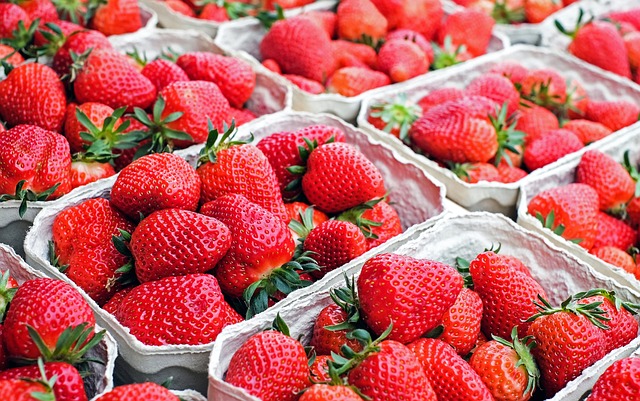Homeowners are increasingly adopting eco-friendly yard care practices, driven by a desire for sustainable living. Key methods include Yard Waste Removal and Recycling, where composting organic waste reduces landfill greenhouse gases and provides nutrient-rich soil amendments. Selecting native plants conserves resources and supports local ecosystems, while water conservation techniques ensure vibrant yards with minimal environmental disruption. By recycling materials like grass clippings and leaves, homeowners can reduce their carbon footprint, enhance soil structure, promote water retention, and contribute to a healthier ecosystem. Local programs and educational resources further facilitate responsible Yard Waste Removal practices.
Many homeowners are now looking for sustainable ways to maintain their outdoor spaces, embracing eco-friendly yard care practices. This shift is driven by a growing awareness of environmental impact and a desire to reduce waste. This article explores how adopting green yard care can benefit both your property and the planet. We’ll delve into effective strategies for responsible yard waste management and recycling, as well as providing local resources to help homeowners make informed choices regarding eco-conscious Yard Waste Removal and Recycling.
- Understanding Eco-Friendly Yard Care Practices
- Benefits of Proper Yard Waste Management
- Effective Strategies for Recycling Yard Waste
- Local Resources and Services for Homeowners
Understanding Eco-Friendly Yard Care Practices

Homeowners increasingly recognize the environmental benefits of eco-friendly yard care practices. This shift is driven by a growing awareness of sustainable living and the desire to minimize their ecological footprint. One key aspect of this is proper Yard Waste Removal and Recycling. Instead of sending organic waste to landfills, where it produces greenhouse gases, homeowners can compost food scraps, grass clippings, and other green waste. This not only reduces landfill waste but also creates nutrient-rich soil amendments for lawns and gardens.
Additionally, eco-conscious yard care involves choosing native plants over non-native species, as natives require fewer resources for survival and are better equipped to support local ecosystems. Water conservation is another critical component, with strategies like installing drip irrigation systems and using rain barrels to collect rainwater for watering. These practices ensure that yards remain vibrant and healthy while promoting a more sustainable and balanced environment.
Benefits of Proper Yard Waste Management

For homeowners concerned about their environmental impact, proper yard waste management is a game-changer. By implementing effective practices like Yard Waste Removal and Recycling, residents can significantly reduce their carbon footprint. This simple yet powerful approach starts with identifying recyclable materials such as grass clippings, leaves, and garden trimmings, which can be transformed into nutrient-rich compost, lowering the need for synthetic fertilizers.
Furthermore, responsible yard waste management contributes to a healthier ecosystem. Recycling diverts organic matter from landfills, where it produces methane, a potent greenhouse gas. Instead, recycled materials enhance soil structure, promote water retention, and provide essential nutrients for plant growth. This sustainable method not only benefits the environment but also fosters a lush and vibrant garden, proving that eco-friendly practices can be both beneficial and aesthetically pleasing.
Effective Strategies for Recycling Yard Waste

Homeowners looking to embrace eco-friendly yard care practices can significantly reduce their environmental impact by effectively recycling yard waste instead of relying solely on Yard Waste Removal services. One proven strategy is composting, which transforms organic materials like leaves, grass clippings, and food scraps into nutrient-rich soil amendments. By setting up a home compost pile or using designated containers, residents can divert substantial amounts of waste from landfills while enriching their garden soil.
Additionally, chipping and shredding yard debris offers another sustainable solution. Branch trimmings and hedge clippings can be transformed into smaller, manageable pieces that act as mulch, suppressing weeds, retaining soil moisture, and gradually decomposing to benefit the soil structure. Local recycling programs often accept these materials, further encouraging responsible Yard Waste Removal practices while fostering a circular economy.
Local Resources and Services for Homeowners

Homeowners interested in eco-friendly yard care have a variety of local resources and services at their disposal. Many cities and towns offer yard waste removal and recycling programs that allow residents to dispose of grass clippings, leaves, and other organic materials responsibly. These programs often include scheduled pick-up services or drop-off locations where homeowners can bring their yard waste for composting or recycling.
Additionally, local nurseries, gardening centers, and community gardens may provide educational workshops and resources on sustainable practices like compost creation, native plant landscaping, and water conservation techniques. Utilizing these local services not only helps reduce environmental impact but also fosters a stronger connection to the community.
Homeowners now have a clear understanding of eco-friendly yard care practices, the significant benefits of proper yard waste management, and effective strategies for recycling yard waste. By utilizing local resources and services for yard waste removal and recycling, homeowners can contribute to a greener environment while enhancing their property’s beauty and value. This shift towards sustainable practices is not only beneficial for nature but also ensures a healthier and more vibrant landscape for future generations.



